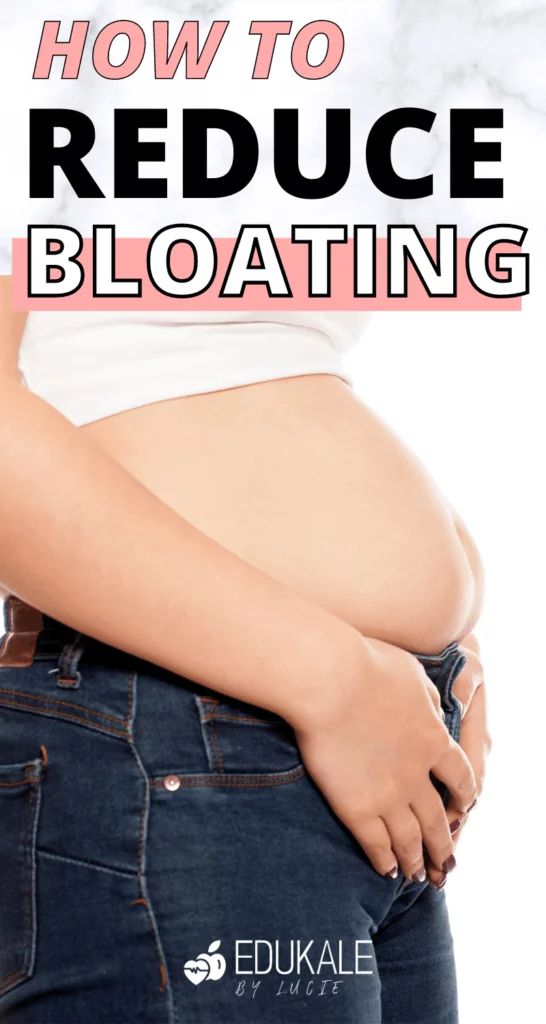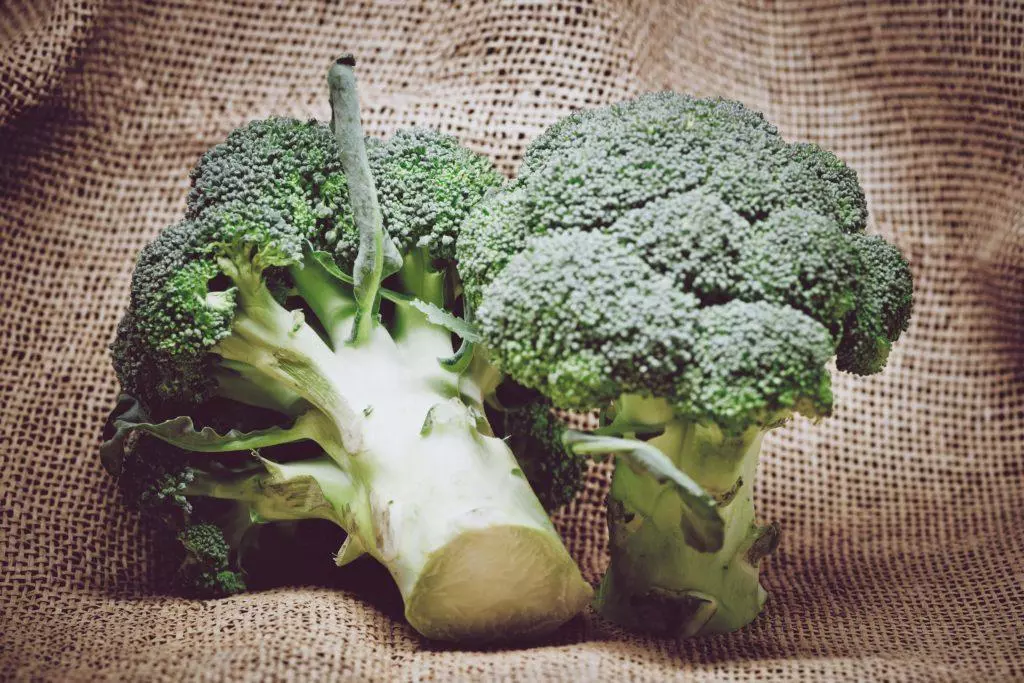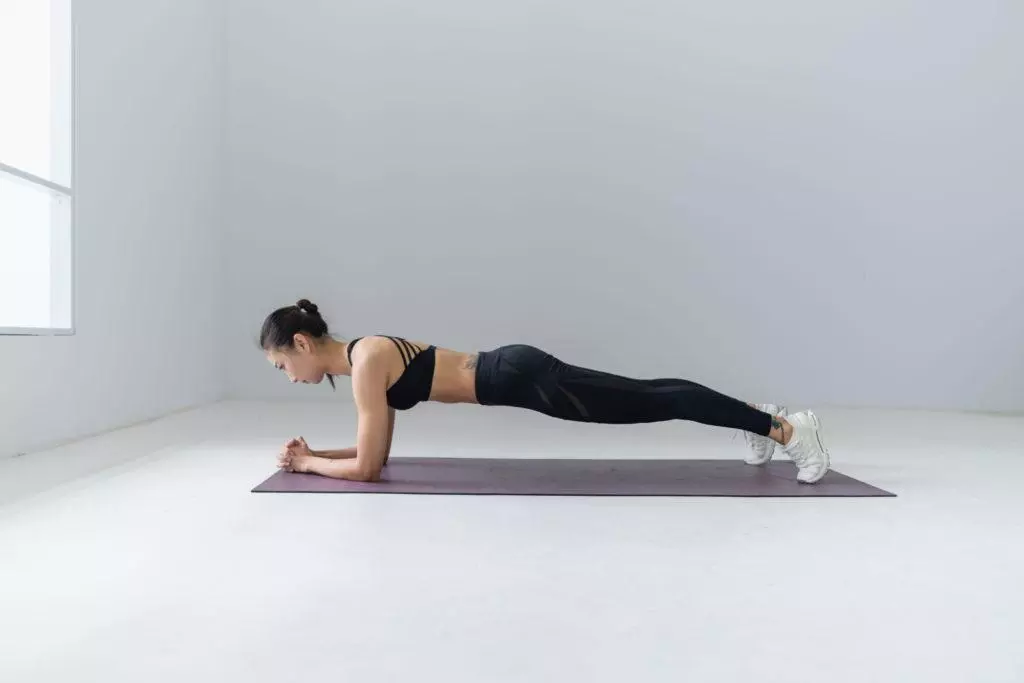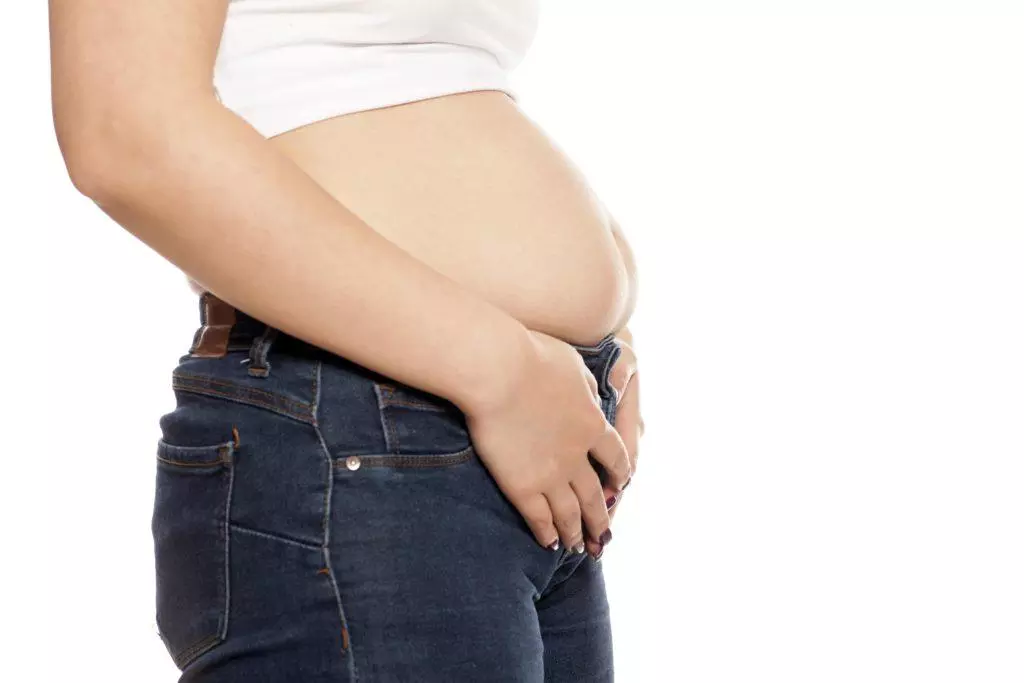This post contains affiliate links from which I may receive a small commission, at no extra cost to you. In no way does this affect my opinion or the information I provide on the product. Please read my disclaimer for more info.
Bloating happens to everyone, whether it be feeling a little swollen after a big meal or feeling your stomach triple in volume after eating a single grape.
While being bloated is not a big deal, it may cause some discomfort and you may be looking for ways to prevent it.
So here are some tips to help reduce bloating.

What is bloating ?
First of all, what is bloating? Bloating is a very common condition, reported by 20-30% of the general population [1].
It has been described as the sensation of increased pressure in the abdomen, feeling stuffed or tight, all while seeing a rapid increase in abdominal size [2]. It mainly occurs when your gastrointestinal tract is filled with air or gas.
It’s important to note that a small amount of bloating is totally normal because digesting your food will produce some gas. While bloating isn’t a dangerous condition, many people do report that it has a significant impact on their quality of life.
Common causes of bloating.
Here are some of the most common causes of bloating:
- eating or drinking too fast
- not chewing your food enough
- chewing gum
- drinking carbonated beverages
- certain types of foods
- excessive gas
- constipation
Here are some more serious conditions that may cause bloating:
- celiac disease or gluten intolerance
- food intolerance
- irritable bowel syndrome
- inflammatory bowel disease
- eating disorders
How to reduce bloating.
Since there are many different causes of bloating, there are also many different things to try, but what works for one person won’t necessarily work for another.
I suggest giving a few of these methods a fair try, but if you’re not seeing any improvement I would consult a doctor. Indeed, you may be suffering from a more serious condition (like the ones mentioned above) of which bloating is a symptom.
Reduce the amount of air you swallow
The first thing I suggest doing to reduce bloating is to eat more slowly. Swallowing air can cause bloating, and you tend to swallow more the quicker you eat. You need to take the time to chew your food properly instead of wolfing down everything in a few seconds.
Drinking too quickly, drinking with a straw, or drinking carbonated beverages like soda can also cause bloating, so these are the things you should try to limit.
Some people also find that talking a lot while eating can cause bloating. Finally, you should avoid chewing gum, which increases the amount of air you swallow.

Experiment with your fiber intake
Foods that contain fiber can be a double-edged sword when it comes to bloating. On one hand, some high-fiber foods can produce large amounts of gas. This includes foods like beans, lentils, cruciferous vegetables, and certain grains.
On the other hand, foods high in fiber can help eliminate food waste rapidly and decrease constipation, which is another cause of bloating. High-fiber foods are also beneficial to your gut bacteria, and an unbalanced gut microbiome can also lead to bloating.
Here’s an article I wrote on high-fiber foods— you can try experimenting with reducing or increasing certain foods and observing the effect it may have on your bloating. (More on experimenting with your diet later!)
Keep in mind that if you’ve recently switched to a diet higher in fiber, you may need some time to adjust, and a bit of bloating is normal in the beginning.
Take care of your gut health
Speaking of high-fiber foods and gut bacteria, it’s also important to maintain a healthy gut to prevent bloating. Consuming enough prebiotics and probiotics can help you do that [3].
Prebiotics are mainly found in high-fiber foods, so you can refer to the previous point for that. As for probiotics, you can either get them from probiotic-rich foods, or from supplements. They can be found in fermented foods, such as yogurt, kefir, kombucha, tempeh, sauerkraut, kimchi, sourdough, miso… read my article on prebiotics and probiotics for more info!
Constipation may also be a cause of bloating [4], and that can be improved by eating more fiber (cf point 2), drinking more water, and doing more physical activity.
Figure out your food intolerances

Certain foods can cause bloating in a lot of people, like legumes and cruciferous vegetables. Make sure to soak, rinse out, and cook your legumes enough as this helps prevent excess gas.
Beyond this, certain people can also have intolerances to foods, which may result in bloating. This can be the case if you are intolerant to gluten or unable to digest dairy, for instance.
In order to pinpoint the cause of your bloating, I suggest you keep a detailed food diary for a few weeks. Write down everything you eat and drink, and rate how bloated you feel on a scale after each meal. After a while, you should be able to see which foods cause the most bloating, and you can try removing them to see if it changes anything.
If you want to take it even further, you can try a low FODMAP diet. FODMAPS are fermentable saccharides and polyols found in foods like wheat, legumes, and certain fruits and veggies that are resistant to digestion.
The goal is to eliminate FODMAP foods, then reintroduce them little by little in order to find the main culprit in your bloating— it isn’t to ban these foods forever! If you wish to try a low FODMAP diet, I suggest you get the help of a professional.
Finally, eating too many highly processed foods rich in fat and sodium can play a role in bloating, so you can try reducing those as well.
Exercise!

Personally, the best thing I’ve found to reduce bloating is to exercise! Studies show that physical exercise can reduce symptoms of bloating, increase intestinal mobility, and enhance intestinal gas clearance [5,6,7]. And that doesn’t mean you have to go to the gym for an hour every day or that you have to do a million abs to reduce the bloating.
You can still reap the benefits by doing mild exercises regularly (like walking or dancing)— the key is to find something that you enjoy and can therefore stick to!
If you’re still chronically bloated, go see a doctor
If none of these tips are helping and you still feel bloated all the time, you may want to get a doctor’s opinion. Bloating may be the symptom of an underlying issue such as celiac disease, irritable bowel syndrome, inflammatory bowel disease, SIBO (small intestine bacterial growth)…
What not to do to reduce bloating.
While I can understand that bloating can be annoying, it’s important not to obsess over it and make it your new “weight loss” trend.
I sometimes feel that trying to reduce bloating is becoming another excuse to go on a very restrictive diet. I also highly suggest staying away from weight loss teas or detox juices or any other diets or supplements that claim to stop bloating. (Read my article on why you shouldn’t go on a detox diet here!)
They will only make you lose water weight, giving you the illusion of de-bloating but everything will go back to normal once you stop. Remember that some bloating is normal and natural, and no stomachs are completely flat all the time!

How to reduce bloating in conclusion.
Bloating is the common feeling of pressure, tightness, or swelling in the abdominal area.
In order to reduce bloating, here are some things to try: eating more slowly and chewing your food correctly, avoiding certain foods and fizzy drinks, experimenting with your fiber intake, taking care of your gut health, figuring out your food intolerances, and exercising!
Don’t hesitate to see a doctor if you feel like nothing is working, but remember that some bloating is totally normal and ok.
-Lucie
If you’re interested in nutrition, its impact on our health, and the science behind it, you should definitely read How Not to Die. In this book, Doctor Michael Greger, founder of Nutrition Facts, examines the top causes of death in America and explains how your diet can prevent— and in some cases even reverse— them. His advice is all backed by science and he writes in a very clear and entertaining way. This book isn’t a list of what you already know. It will teach you the keys to living a long healthy life, in a simple and practical way, and without spending fortunes on supplements and pills!
PLUS if you want to take it a step further, you can check out the How Not to Die Cookbook to implement the advice easily!


